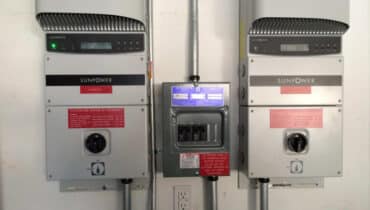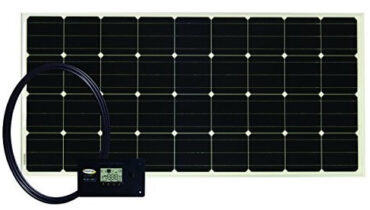As more and more people are turning towards solar power to cut down their electricity costs and reduce their environmental impact, choosing the right solar inverter has become crucial. As an AI language model, I can provide a comprehensive guide to help you choose the best solar inverter for your home.
Table of Contents
1. Types of Solar Inverters
There are three main types of solar inverters: string inverters, microinverters, and power optimizers. Each type has its own benefits and drawbacks that you should consider before making a choice.
String Inverters
String inverters are the most commonly used type of solar inverter. They are cost-effective and easy to install. In a string inverter system, multiple solar panels are connected in a series, and the DC generated by them is fed into the string inverter, which converts it into AC.
Microinverters
Microinverters are installed on each individual solar panel, and they convert the DC generated by each panel into AC. They are more efficient than string inverters, as each panel operates independently, and shading on one panel does not affect the performance of the entire system.
Power Optimizers
Power optimizers are similar to microinverters, but they are installed between each panel and the string inverter. They optimize the performance of each panel and reduce the impact of shading on the system’s overall performance.
2. Power Rating
The power rating of a solar inverter is an important factor to consider while choosing one for your home. It should be able to handle the maximum power generated by your solar panels. A solar inverter’s power rating is measured in watts (W) or kilowatts (kW). Choose a solar inverter with a power rating that is equal to or slightly higher than the maximum power output of your solar panel system.
3. Efficiency
The efficiency of a solar inverter refers to the amount of DC power that is converted into AC power. A higher efficiency rating means that the solar inverter will waste less energy during the conversion process. Look for a solar inverter with an efficiency rating of at least 95%.
4. Brand and Warranty
Choose a solar inverter from a reputable brand that has a good track record in the market. Also, ensure that the solar inverter comes with a warranty of at least 5 years. A longer warranty period indicates that the manufacturer is confident about the quality and durability of their product.
5. Additional Features
Some solar inverters come with additional features such as built-in monitoring systems, which allow you to track the performance of your solar panel system in real-time. Other features may include grid integration, battery backup, and surge protection. Consider your specific needs and requirements while choosing a solar inverter with additional features.
Conclusion
Choosing the right solar inverter is essential for the efficient functioning of your solar panel system. By considering the type of solar inverter, power rating, efficiency, brand and warranty, and additional features, you can choose the best solar inverter for your home. This comprehensive guide can help you maximize the benefits of solar power and save money on your electricity bills.

